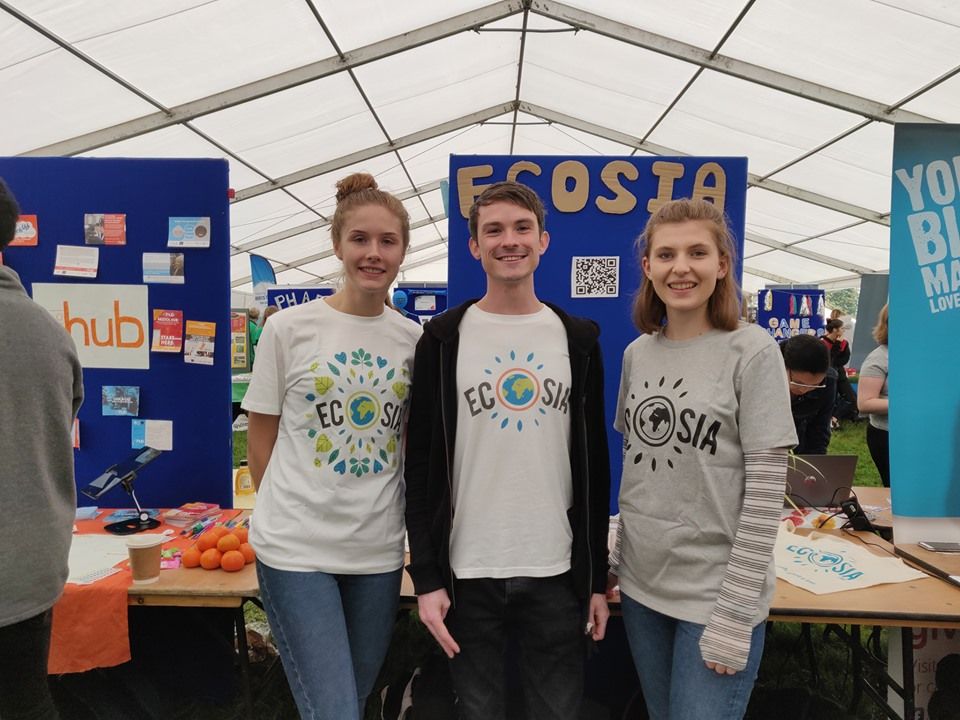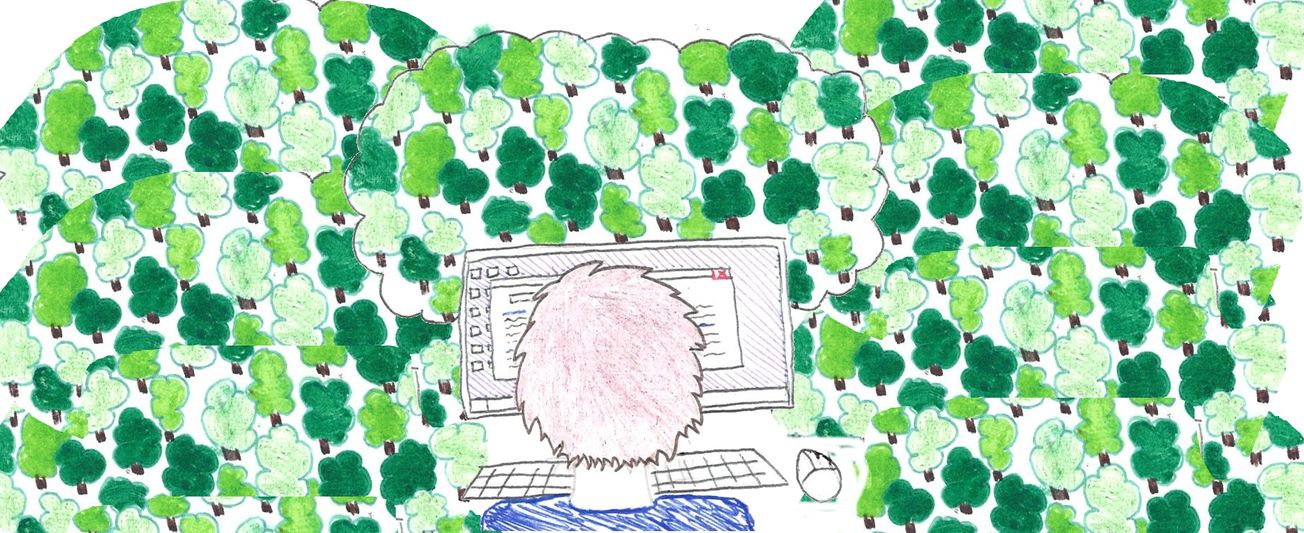By Vilhelmiina Haavisto, SciTech Editor
Epigram interviews students campaigning for the University to switch the campus-wide default search engine to a greener alternative.
Hannah Rose and Elspeth Taylor, two 4th year veterinary medicine students, spent their time at this year's Welcome Fair enthusiastically engaging with students about their campaigning group Bristol on Ecosia. Their goal is to convince the University of Bristol (UoB) to switch all of its computers’ default search engines to Ecosia, which uses searches to plant trees. Elspeth notes that “many students use it already, but may not be aware of our campaign.”
It has been a busy year for Bristol on Ecosia. Hannah and Elspeth delivered a speech at last term’s Bristol SU Annual Members Meeting (AMM), where they called for the University to switch to Ecosia to become “more sustainable” and highlight how small changes can make a big difference. They also stressed the positive impacts of Ecosia-funded projects around the world, from CO2 removal from the atmosphere to “providing employment and an income” to the communities where these projects are implemented. The motion passed, which was a key achievement for the campaign.
“[The AMM pass] shows that the students back our cause”, Hannah says, citing student support as major leverage for talks with senior University staff. Hannah and Elspeth believe that the three years for which the SU guarantees to support passed AMM motions is “plenty of time” to achieve their goal.

The Europe-wide initiative Ecosia on Campus have already seen success at several universities across the UK, including the Universities of Swansea and Sussex. Fred Henderson, a Sussex graduate and co-founder of Ecosia on Campus, was also present at the Welcome Fair stall. Since the successful Sussex campaign, Henderson has worked with institutes such as the Sorbonne in Paris and The Hague University in the Netherlands. He has witnessed the effects of a campus-wide switch to Ecosia firsthand. Henderson tells Epigram that “since switching to Ecosia, Sussex Uni have facilitated the planting of over 13,000 trees.”
There are currently over 20 Ecosia campaigns across UK campuses, with Leeds, Sunderland, UCL and Imperial College London all showing great promise according to Henderson. “UoB’s is one of the biggest,” he says. At the time of writing, users have planted over 240 trees with their 36,000 searches.
Ecosia on Campus’s target is to plant 100,000 trees by the end of 2019. “40,000 trees have been planted so far across all participating campuses, so there’s still work to be done,” Henderson admits, but not without optimism. Ecosia on Campus plan to put out a press release when this target is reached – Henderson stresses that this would be “great publicity” for all the Universities involved, as it shows a clear “commitment to sustainability and climate action”.
The declaration of a climate emergency in April 2019 and the commitment made to become carbon-neutral by 2030 show that UoB is serious about sustainability. Bristol on Ecosia has been in contact with Martin Wiles, Head of Sustainability at UoB, who told Epigram that he is “keen to support a range of Student Sustainability Projects by providing resources, support, or connecting the students with the right people”. Having already worked with groups such as Extinction Rebellion and Roots Community Gardening, he expressed an interest in “investigating whether [Ecosia]…might help reduce [the University’s] carbon emissions…and what its benefits would be”, especially considering the climate emergency declaration.
At the time of writing, over 8 million Ecosia users around the world have planted almost 70 million trees with their searches. Ecosia calls itself a “carbon negative” search engine, as each search “removes 1kg of CO2 from the air” through tree-planting and use of renewable energies. “It’s a much greener alternative,” Elspeth points out.
Signatures are steadily filling the pledge to commit to using Ecosia by the early afternoon, and it is obvious that students have many reasons to care about the campaign. To those still on the fence, Hannah emphasises the “massive social and environmental impacts” of the community-based projects that Ecosia funds in countries such as Ghana, Indonesia, and Nicaragua. Elspeth “personally doesn’t notice the difference” between Google and Ecosia – “[internet searches] are something you do every day”, she says, “and switching the engine you do them on to Ecosia is a small, easy change to make.”
Find the ‘Bristol on Ecosia’ campaign on Facebook, and start using Ecosia to add your tree count to UoB’s total today!
Featured image: Epigram / Vilhelmiina Haavisto
Are you using Ecosia? Let us know!









